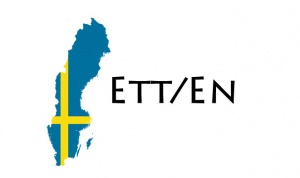Difference between revisions of "Language/Swedish/Grammar/When-use-Ett-or-En"
| Line 1: | Line 1: | ||
<div class="pg_page_title">"Ett" Versus "En" in Swedish</div> | <div class="pg_page_title">"Ett" Versus "En" in Swedish</div> | ||
[[File: | [[File:ett-en.jpg|thumb]] | ||
Hej everyone 😀! | Hej everyone 😀! | ||
| Line 129: | Line 129: | ||
{{#seo: | {{#seo: | ||
|title=Learn Swedish: When use En or Ett? | |||
|description=En or Ett? In this lesson you will learn when to use those two words. | |||
|og:image=https://polyglotclub.com/wiki/images/thumb/b/bb/Ett-en.jpg/450px-Ett-en.jpg | |||
}} | }} | ||
[[Category: Swedish/Beginner]] | [[Category: Swedish/Beginner]] | ||
Revision as of 20:28, 2 June 2022
Hej everyone 😀!
In today's lesson you will learn WHEN TO USE ETT & EN in Swedish.
In English, both articles "Ett" and "En" translate to "a" but when to use ett or en? Is there a grammatical rule to use?
NOUN FORMS
DEFINITE FORM
When we want a noun to be in definite form we add a suffix to the noun; -en, -n or -et.
For example:
- Ett bord = Bordet
- En hund = Hunden
- Ett äpple = Äpplet
- En skola = Skolan
Here we just add -n since the word already ends with a vowel.
As you might have noticed, you can know which suffix to use by looking at the indefinite article.
- If it's an "En-word", the suffix is -en or -n.
- If it's an "Ett-word", the suffix is -et.
INDEFINITE FORM
In Swedish, we have two words to choose when we want to write about nouns in an indefinite form: En or Ett.
Examples:
- Ett bord = A table
- En hund = A dog
- Ett äpple = An apple
- En skola = A school
IS THERE A GRAMMATICAL RULE?
Native English speakers often make the following mistake:
- En (Swedish article) = An (English article)
- Ett (Swedish article) = A (English article)
⚠ This rule is wrong!
→ There is no grammatical rule to know when to use En or Ett, you just simply have to learn them.
GOOD NEWS: THERE ARE SOME GUIDELINES
Yes! there are some guidelines that can help you to predict the gender:
- Most of the human beings and animals are en nouns. (Exceptions: ett barn, ett djur, ett bi, ett lejon).
- Days, months, seasons are en nouns (Exception: ett dygn).
- Most of the nouns that end in -ad, -are, -dom, -else, -het, -ing, -ning, -ion, -ism, -lek, -nad, -or are en nouns.
- Most of the nouns that end in -ande, -ende, -ek, -em, -iv, -um are ett nouns. Names of continents, countries, provinces, towns are ett nouns
EXAMPLES (in several languages)
| ENGLISH | SWEDISH | PRONUNCIATION IN
ENGLISH |
FRENCH | PORTUGUESE |
|---|---|---|---|---|
| A table | Ett bord | eht bohr | Une table | Uma mesa |
| A dog | En hund | ehn hoon | Un chien | Um cachorro |
| An apple | Ett äpple | eht eh pleh | Une pomme | Uma maçã |
| A school | En skola | ehn skoo lah | Une école | Uma escola |
| The table | Bordet | bohr deht | La table | A mesa |
| The dog | Hunden | hoon dehn | Le chien | O cachorro |
| The apple | Äpplet | eh pleht | La pomme | A maçã |
| The school | Skolan | skoh lahn | L'école | A escola |
Videos
